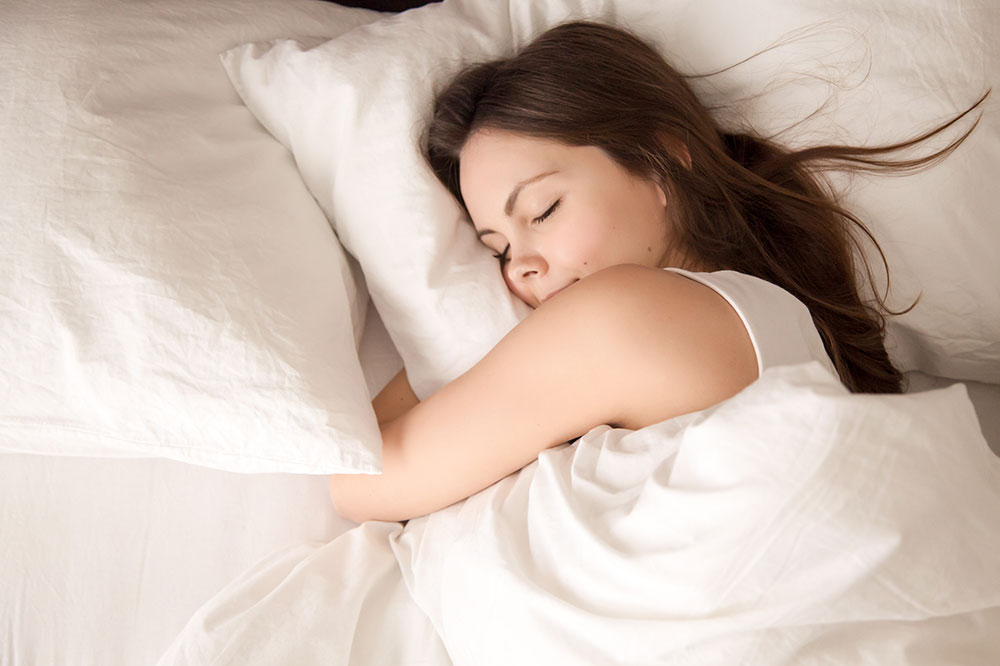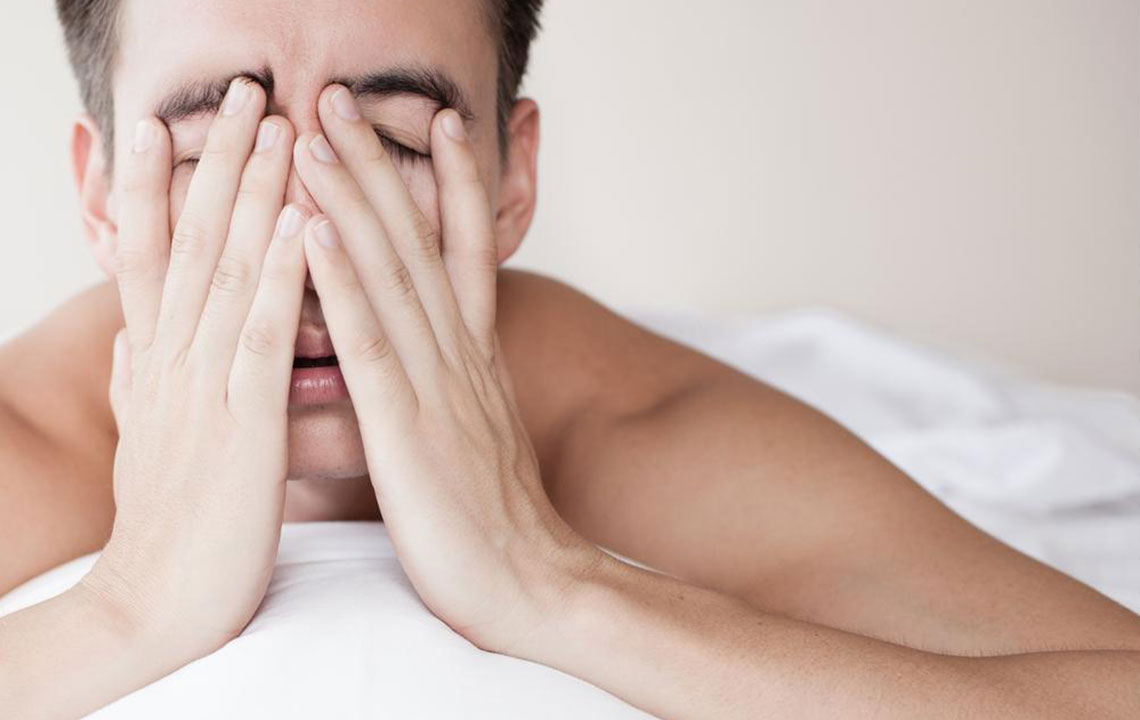Top 5 Bedtime Habits to Avoid for Better Sleep Quality
Improve your sleep quality by learning which common pre-bedtime habits to avoid. This extensive guide covers electronics, meals, caffeine, stress, and entertainment, providing practical tips to create a peaceful and restful sleep environment. Transform your nightly routine and wake up refreshed and energized every day.

Achieving a deep, restorative sleep is essential for maintaining good health, mental clarity, and overall well-being. Many factors influence sleep quality, starting from your pre-bedtime routines to the environment you create in your bedroom. Even if you invest in a high-quality mattress from reputable brands like Tempur-Pedic, Saatva, Sleep Number, Serta, or Essentia, your nightly habits play a critical role in how well you sleep. Certain behaviors can significantly hinder the body's natural ability to wind down and enter restful sleep cycles. Recognizing and avoiding these common habits can make a profound difference in your sleep quality, leading to better physical health, improved mood, and increased productivity during the day.
In this comprehensive guide, we explore the top five pre-bedtime habits to steer clear of, supported by scientific insights and expert recommendations. Implementing these changes in your nightly routine can help you create a more conducive environment for restful sleep, reduce night-time awakenings, and improve your overall sleep cycle. Let's delve into each habit and understand why they disrupt sleep and how you can replace them with healthier alternatives.
1. Using Electronics Before Bedtime
One of the most pervasive habits in today's digital age is engaging with electronic devices—smartphones, tablets, laptops, or televisions—shortly before sleep. While these devices provide entertainment, social connection, and information, they emit blue light that can significantly interfere with the body's natural sleep mechanisms. Blue light suppresses the production of melatonin, the hormone responsible for signaling sleep to your brain, leading to difficulties in falling asleep and reduced sleep quality.
Studies have shown that exposure to screen time in the hour before bed increases alertness and delays sleep onset. Staying glued to screens late at night keeps the brain active, stimulating cognitive processes that hinder relaxation. Moreover, the engaging content, such as social media, games, or work-related emails, can increase stress levels, further disrupting your ability to unwind. Instead of scrolling through your devices, consider reading a calming book, listening to gentle music, or practicing relaxation techniques like deep breathing or meditation. These activities signal the body that it's time to wind down and prepare for sleep.
2. Eating Heavy or Spicy Meals Close to Bedtime
Diet and sleep are intimately connected. Consuming large, heavy, or spicy foods in the hours leading up to sleep can cause discomfort and digestive issues, such as acid reflux, indigestion, or bloating. These discomforts make it harder to settle into bed and stay asleep throughout the night. Additionally, spicy foods can increase core body temperature, which naturally drops during sleep, thereby impairing sleep quality.
Experts recommend having your last substantial meal at least 2-3 hours before bedtime. Opt for lighter, easily digestible foods, and avoid alcohol and caffeine, which can further disturb sleep patterns. Keeping hydrated is important, but excessive fluid intake right before bed can lead to frequent trips to the bathroom, disrupting your sleep cycle. Instead, if you're hungry at night, choose a small, healthy snack such as fruit, nuts, or yogurt, which won't interfere with your sleep.
3. Consuming Caffeine Late in the Day
Caffeine is a stimulant found in coffee, tea, energy drinks, and even some medications. Its effects can last for 6-8 hours depending on individual sensitivity, making it a significant barrier to falling asleep if consumed later in the day. While many rely on caffeine to boost energy and alertness, excessive or late-day intake can lead to difficulty relaxing and longer sleep latency.
If you’re sensitive to caffeine or find your sleep is disturbed, consider limiting your caffeine consumption to the morning hours. Gradually reducing your intake or switching to decaffeinated beverages can help improve sleep quality. Herbal teas, such as chamomile or valerian root, are excellent alternatives that promote relaxation without affecting melatonin production. Managing caffeine intake is one of the simplest yet most effective steps toward better sleep hygiene.
4. Watching Intense or Stressful Movies Before Bed
Watching horror, action, or emotionally charged films just before bed can elevate your adrenaline and stress hormone levels, making it difficult to relax and fall asleep. Such content can trigger a sympathetic nervous system response—think increased heart rate and heightened alertness—which opposes the parasympathetic response necessary for sleep.
Instead, opt for calming activities in the evening, such as gentle reading, listening to soothing music, or practicing mindfulness meditation. Creating a relaxing bedtime environment signals to your body that it’s time to wind down, which can significantly improve sleep onset and quality. If you enjoy visual entertainment, choose light-hearted or slow-paced programs that won’t stimulate your adrenaline excessively.
5. Engaging in Arguments or Stressful Conversations
Finally, engaging in serious or heated discussions before bed can lead to heightened emotional arousal, racing thoughts, and increased stress levels—all of which interfere with your ability to relax. Mental and emotional stress is a common barrier to sleep and can cause longer sleep latency, more frequent awakenings, and overall poorer sleep quality.
To improve sleep hygiene, schedule important or emotionally charged conversations earlier in the day. If a disagreement arises at night, practice calming techniques or write down your thoughts to process them before attempting sleep. Establishing a peaceful, conflict-free pre-sleep environment helps your nervous system transition smoothly into restful sleep.
Practical Tips for Better Bedtime Routines
By consciously avoiding these five habits, you establish a healthier, more restful bedtime routine. Here are additional tips to enhance your sleep hygiene:
Create a consistent sleep schedule: Go to bed and wake up at the same time every day, even on weekends.
Design a sleep-friendly environment: Keep your bedroom cool, dark, and quiet. Invest in quality bedding and blackout curtains if needed.
Limit screen time before bed: Try to turn off devices at least one hour before sleep.
Incorporate relaxing activities: Practice meditation, gentle stretching, or deep breathing exercises to wind down.
Avoid caffeine and heavy meals late in the day: Stick to light snacks and herbal teas in the evening.
Conclusion
Optimizing your pre-sleep habits is a crucial step toward achieving better sleep quality. By avoiding electronic devices, heavy meals, caffeine, intense entertainment, and stressful discussions before bed, you help your body transition smoothly into restful sleep cycles. Pair these behavioral changes with a comfortable mattress and an ideal sleep environment to enjoy truly restorative sleep every night. Remember, consistent, healthy routines are key to long-term sleep health and overall well-being. Prioritize your sleep hygiene today and experience the benefits of waking up refreshed and energized each morning.





